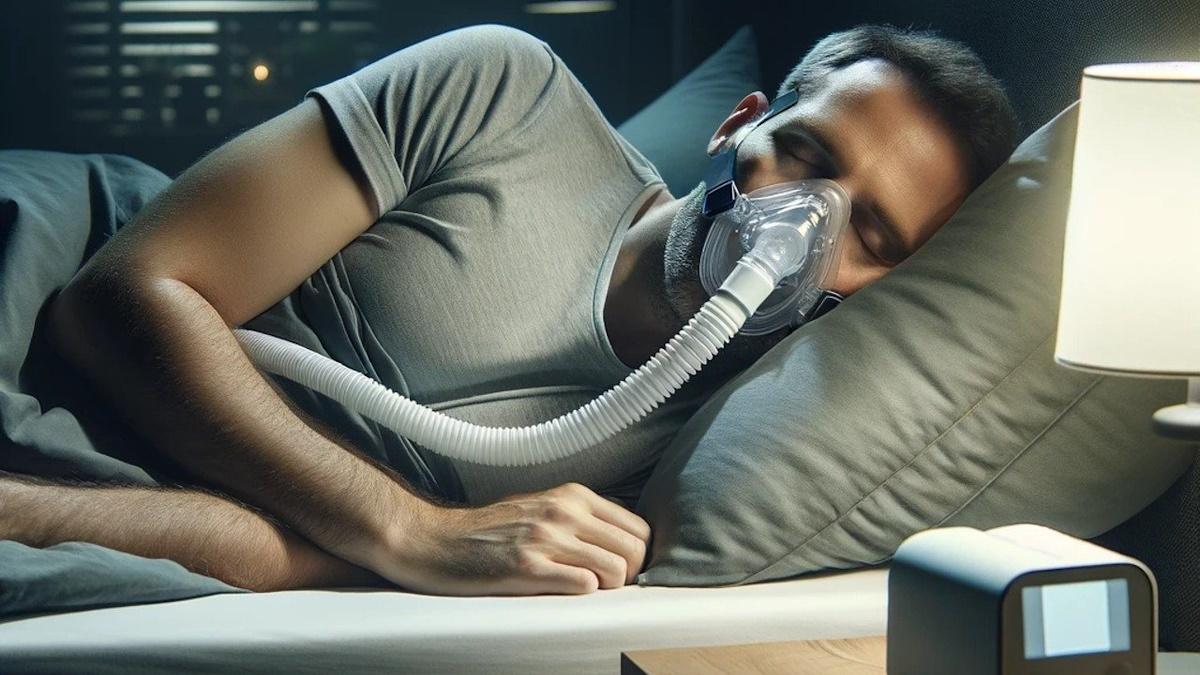Lilly grabs first-ever FDA nod for a sleep apnoea drug

Patient using a positive airway pressure mask
Eli Lilly's Zepbound has become the first drug to be FDA-approved for obstructive sleep apnoea (OSA), a sleep-related breathing disorder that is most common in people who are overweight and affects millions of people in the US.
The US regulator has said Zepbound (tirzepatide) can be used to treat moderate-to-severe OSA, in combination with a reduced-calorie diet and increased physical exercise, in adults with obesity.
Sally Seymour, director of the division of pulmonology, allergy, and critical care at the FDA Centre for Drug Evaluation and Research (CDER), said the approval is "a major step forward for patients."
OSA results in repeated interruptions in breathing during sleep caused by narrowing and collapse of the airway. Untreated, it can lead to serious complications, such as heart attack, glaucoma, diabetes, cancer, and cognitive and behavioural disorders.
In trials, Lilly's dual GIP/GLP-1 agonist reduced OSA severity in adults with OSA and moderate-to-severe obesity measured using the apnoea hypopnea index (AHI), which measures how many times a person stops breathing per hour during sleep.
Across two phase 3 trials, Zepbound reduced OSA episodes in both participants using positive airway pressure (PAP), the standard of care for moderate to severe OSA, which involves wearing a mask during sleep, and in those unable or unwilling to try PAP. FDA said the benefit of Zepbound "is likely related to body weight reduction."
Patients in the SURMOUNT-OSA studies had an average weight loss of around 20% with Zepbound and PAP treatment and, according to Lilly, had at least 25 fewer breathing interruptions each hour as they slept. Moreover, up to 50% of adults taking Zepbound no longer had symptoms associated with OSA after one year.
"Too often, OSA is brushed off as 'just snoring' – but it's far more than that," said Julie Flygare, president and chief executive of sleep health non-profit Project Sleep.
"It's important to understand OSA symptoms and know that treatments are available, including new options like Zepbound," she added, saying tha they "hope this will spark more meaningful conversations between patients and healthcare providers and ultimately lead to better health outcomes."
OSA impacts 80 million adults in the US, with more than 20 million living with moderate-to-severe symptoms, but it is estimated that a large majority (around 85%) of cases go undiagnosed and therefore untreated.
The condition thus represents a major new indication for Zepbound, which is already growing at a phenomenal rate on the back of its use for chronic weight management. The drug recently bested its main rival – Novo Nordisk's Wegovy (semaglutide) – for achieving weight loss in a head-to-head trial.
Lilly made $1.26 billion from Zepbound sales in the third quarter, around $500 million lower than analyst forecasts, before the comparative data with Wegovy was reported. GlobalData recently predicted that the product's sales will top $25 billion by 2030, ahead of Wegovy with $19.4 billion.
Image by Resmed India from Pixabay











